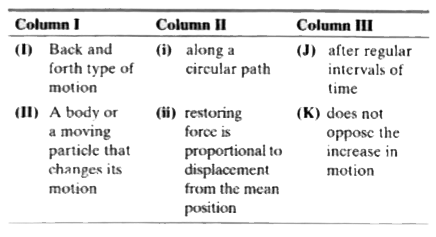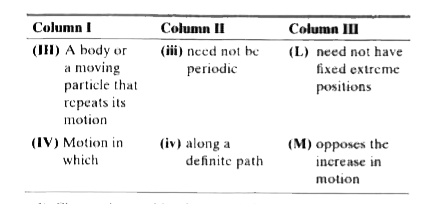In the given table, Column I gives type of motion, Column II gives the path traced and Column III gives other characteristic of the motion.
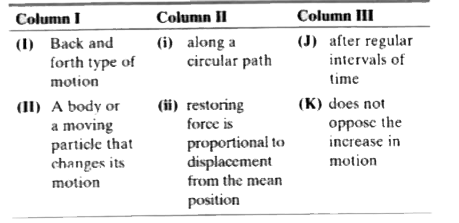
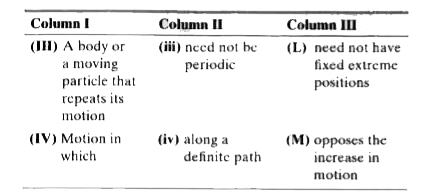
Choose the combination that defines the characteristics of simple harmonic motion.
(I) (iii)(K)
(IV) (iii) (J)
(II) (iii) (M)
(I) (iii) (L)
The correct Answer is:D
Step by step video & image solution for In the given table, Column I gives type of motion, Column II gives the path traced and Column III gives other characteristic of the motion. Choose the combination that defines the characteristics of simple harmonic motion. by Physics experts to help you in doubts & scoring excellent marks in Class 12 exams.
Topper's Solved these Questions
- BOOK - RESNICK AND HALLIDAYCHAPTER - OSCILLATIONSEXERCISE - Problems39videos
OSCILLATIONS
- BOOK - RESNICK AND HALLIDAYCHAPTER - MOTION IN TWO AND THREE DIMENSIONSEXERCISE - PRACTICE QUESTIONS (MATRIX-MATCH)10videos
MOTION IN TWO AND THREE DIMENSIONS
- BOOK - RESNICK AND HALLIDAYCHAPTER - PHOTONS AND MATTER WAVESEXERCISE - PRACTICE QUESTIONS(Integer Type)4videos
PHOTONS AND MATTER WAVES
Similar Questions
Knowledge Check
- Question 1 - Select One
Which of the following is not characteristics of simple harmonic motion?
AThe motion is periodicBthe motion is along a straight line about the mean positionCThe oscillations are responsible for the energy conversion.DThe acceleration of the particle is directed towards the extreme position. - Question 2 - Select One
In the given table, Column I gives description of waves characteristics, Column II gives their characteristic and Column II shows their graphical representation.

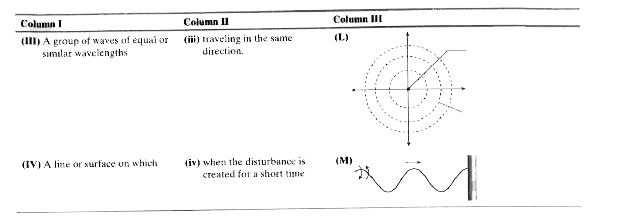
What are the characteristics of a wave front?A(III)(ii) (J)B(IV) (ii) (L)C(II) (iii) (K)D(I) (i) (M) - Question 3 - Select One
In the given table, Column I gives description of waves characteristics, Column II gives their characteristic and Column II shows their graphical representation.

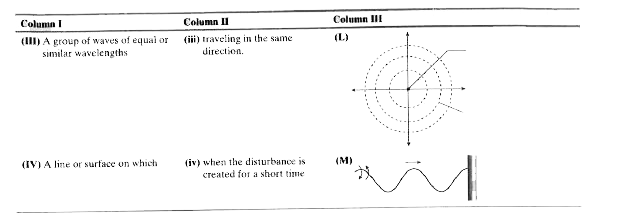
What are the characteristics of a wave pulse?A(I) (iii) (L)B(IV) (ii) (M)C(II) (iv) (J)D(I) (iv) (K)
What are the two basic characteristics of a simple harmonic motion?
View SolutionWhat are the two basic characteristics of a simple harmonic motion?
View SolutionIn the given table, Column I gives type of oscillation, Column II gives change in amplitude of oscillation and Column III gives examples of these types of oscillation.
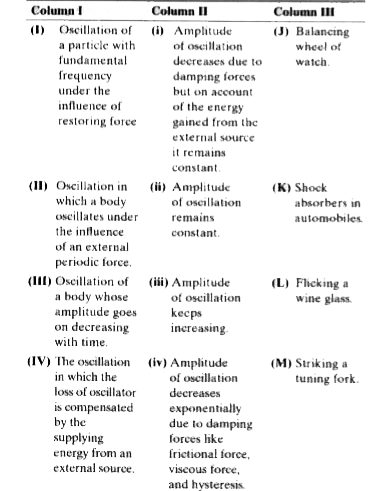
The combination that defines the features of damped oscillation isView SolutionIn the given table, Column I gives type of oscillation, Column II gives change in amplitude of oscillation and Column III gives examples of these types of oscillation.
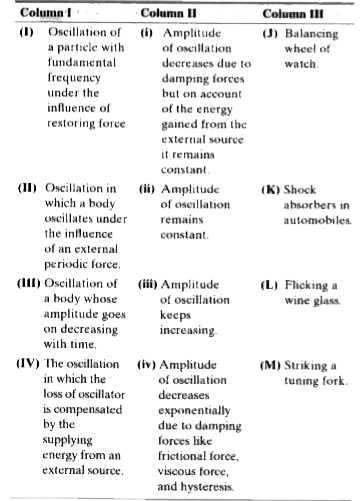
The combination that defines the features of free oscillation isView SolutionIn the given table, Column I gives type of oscillation, Column II gives change in amplitude of oscillation and Column III gives examples of these types of oscillation.
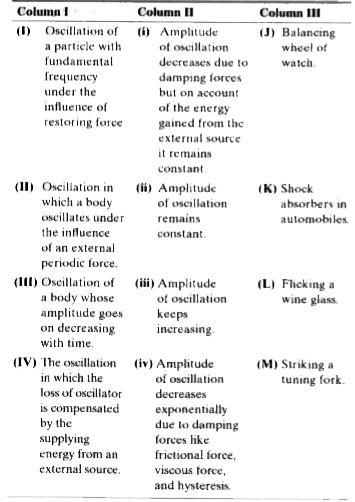
The combination that defines the features of forced oscillation isView Solution


